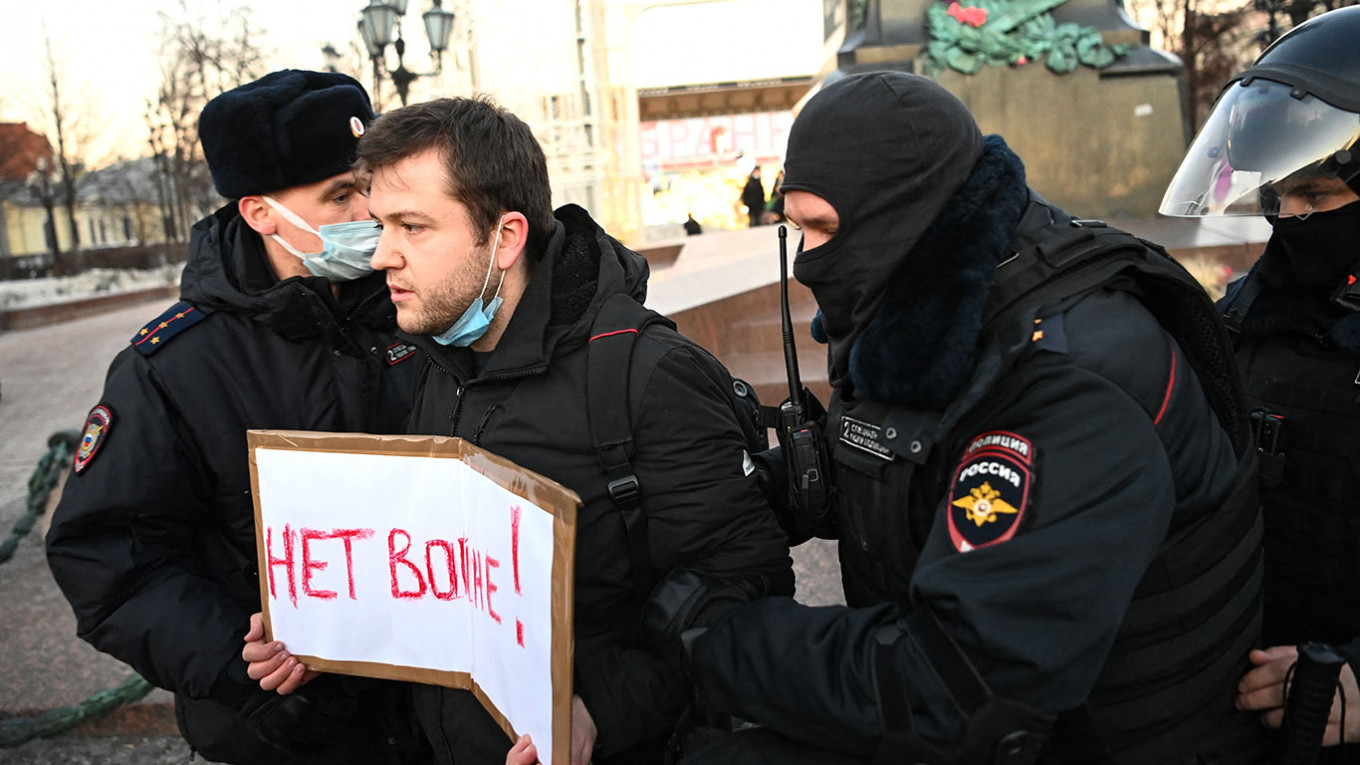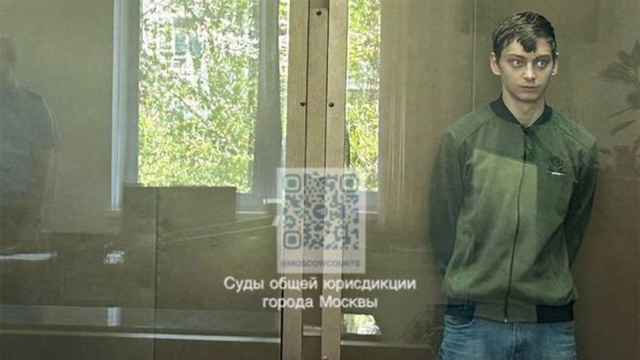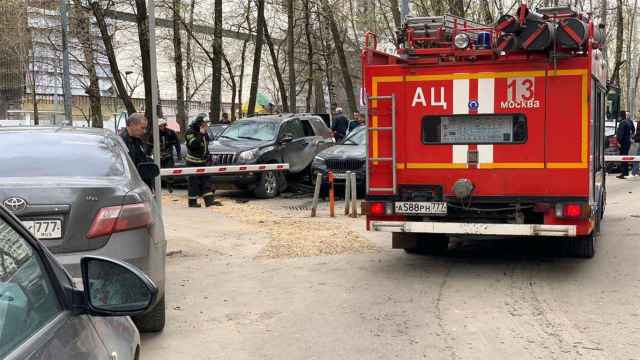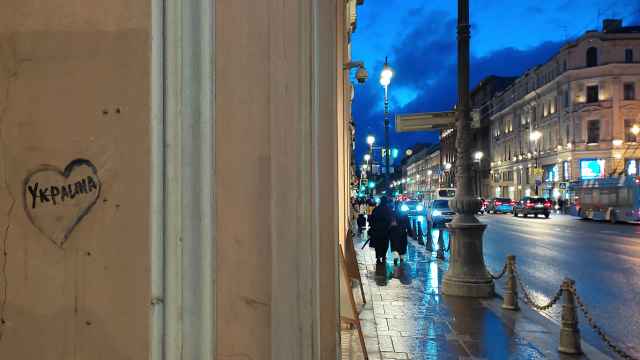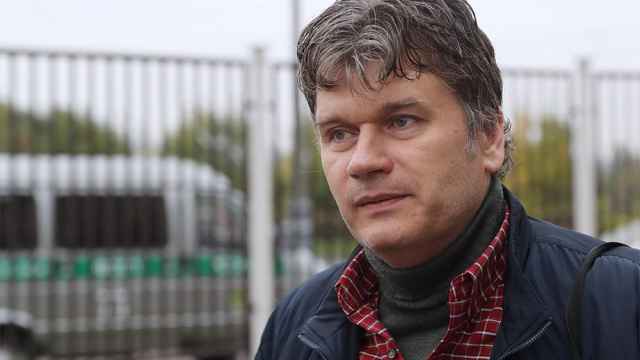Muscovites were in a state of shock on Thursday after waking to the news that Russia had invaded neighboring Ukraine.
"It's a surreal situation. I couldn't fathom that something like this would happen. I thought it was all a bluff," said 20-year-old theater worker Mikhail, one of the pedestrians The Moscow Times spoke to on a walk from Red Square to the Novy Arbat shopping street, the Kremlin’s spires in the background.
Weeks of intense diplomacy and the imposition of Western sanctions failed to avert the offensive, after Russia amassed between 150,000 and 200,000 troops around Ukraine’s borders and recognized the breakaway Donetsk and Luhansk People’s Republics.
"This is a horrible situation," said Pavel, 47, as he walked to work along the Arbat.
"This is not normal. We have nothing that divides us — one person has gone insane and attacked another country. I have no problems with Ukraine, I don't need anything from them," he added.
Along with the shock, commuters and groups of students on the street expressed feelings of dismay.
"We don't understand why it's happening. We can't fully support the politics of our president because we don't understand his logic and actions," said Milana, 16, as she rushed to school with a crowd of friends.
Yet not all of those interviewed disagreed with their government’s actions.
"The situation is fine. Go Russia," one passerby remarked in response to a question about the news of the attack, refusing to stop.
Russian President Vladimir Putin said in an address on Thursday morning that Russia would be launching a "special military action" aimed at the "demilitarization and denazification" of Ukraine.
Russia has grown increasingly intolerant of its eastern neighbor since the 2014 ousting of pro-Russian president Victor Yanukovch during the Maidan revolution, as Ukraine has repeatedly laid out its ambitions to join NATO.
For some Russians, it is these ambitions, and the U.S. refusal to crush them, that led to the invasion.
"This is not a situation between Ukraine and Russia. It is a situation about America," said 42-year-old Nataliya, who was on a cigarette break from work.
"The people at the top in Washington started this by provoking Russia," she added.
"Russia and the U.S. are both guilty, Ukraine is just caught in the middle," said Valeriy, a softly-spoken 59-year-old Muscovite.
Foreign currency
As the Russian stock exchange saw over half of its value erased in the early hours of trade Thursday, ordinary Russians rushed to cash machines to withdraw foreign currencies.
When an armored van pulled up outside a branch of Austrian-Russian bank Raiffeisen, 20 people dashed inside the building, desperate to get their hands on foreign currency as the ruble plummeted to record lows against the U.S. dollar and the euro.
The Kremlin on Thursday said it believes Russians will "support" the Kremlin's operations in Moscow, but feelings of anger and helplessness were prevalent in the capital.
"Nothing good will come out of this. We don't need war, we need to be able to come to agreements," said computer programmer Dmitry, 36.
Over 60 activists and journalists were reported in local media to have been arrested on Thursday, with pop stars, late-night television hosts and film directors posting black squares to Instagram, and single-person pickets popping up across the country.
“We the Russians will be dealing with the consequences of today for many more years,” wrote socialite and former presidential candidate Ksenia Sobchak.
Though with any public protests outlawed since the start of the pandemic, and the threat of arrest and imprisonment likely, the risks for many are simply not worth it.
"There's no point Russians going against him," Milana said, "nothing will change."
A Message from The Moscow Times:
Dear readers,
We are facing unprecedented challenges. Russia's Prosecutor General's Office has designated The Moscow Times as an "undesirable" organization, criminalizing our work and putting our staff at risk of prosecution. This follows our earlier unjust labeling as a "foreign agent."
These actions are direct attempts to silence independent journalism in Russia. The authorities claim our work "discredits the decisions of the Russian leadership." We see things differently: we strive to provide accurate, unbiased reporting on Russia.
We, the journalists of The Moscow Times, refuse to be silenced. But to continue our work, we need your help.
Your support, no matter how small, makes a world of difference. If you can, please support us monthly starting from just $2. It's quick to set up, and every contribution makes a significant impact.
By supporting The Moscow Times, you're defending open, independent journalism in the face of repression. Thank you for standing with us.
Remind me later.



